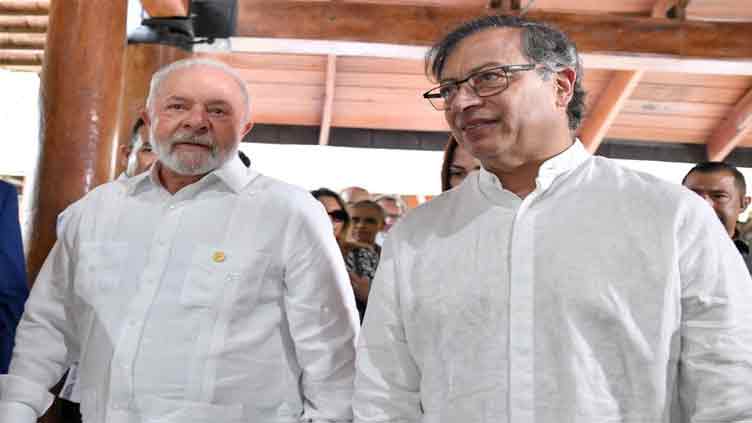Colombia, Brazil presidents pledge cooperation to protect Amazon

Business
Petro and Lula have called on rich nations to cough up funds to preserve the forests
BOGOTA (Reuters) – The presidents of Brazil and Colombia discussed regional coordination to fight deforestation and protect the world's largest and most biodiverse rainforest at a meeting in Colombia's Amazonian city of Leticia on Saturday.
"My government is committed to eliminating illegal deforestation by 2030," said Brazilian President Luiz Inacio Lula da Silva, who called for better regional and global coordination. "This is a commitment that the Amazon countries can assume together at the upcoming Belem summit."
The pledge comes as over half of the world's economic output is moderately or highly dependent on nature and its services, the World Economic Forum has said, and in December a landmark deal to protect and preserve it was agreed in Montreal.
Read more: More firms report on deforestation, yet few have plan to stop it: CDP
The meeting between Lula and Colombia's President Gustavo Petro followed talks in Leticia earlier this week between environmental ministers from Amazonian countries, including Colombia's Susana Muhamad, Peru's Albina Ruiz Rios, and Josue Lorca from Venezuela, among others.
Both Petro and Lula, who each took office less than a year ago, have called on rich nations to cough up funds to help South American countries preserve the Amazon, considered key to fighting global climate change.
Meetings in Leticia come before a summit of Amazon nations hosted by Brazil in the city of Belem, at the mouth of the Amazon river, in August.
The coming summit is an attempt to move the Amazon Cooperation Treaty Organization nations to act together to preserve the forest and promote sustainable development in a region threatened by illegal loggers and gold miners, animal smugglers and drug traffickers.
The organization was started in 1978 by Bolivia, Brazil, Colombia, Ecuador, Guyana, Peru, Suriname, and Venezuela. French Guiana, an overseas territory of France, is invited to meetings.
Earlier this week, UN Secretary-General Antonio Guterres said that the world has the power to “seek and unite for solutions” — even when beset by growing divisions and rising geopolitical tensions — to deal with three major challenges, including climate change, facing the humanity.
In his remarks, the UN chief said the growing divisions had been aggravated by different national and reasonable responses to global crises, differences over security threats, and the consequences of COVID and Russia’s invasion of Ukraine.
“But today’s global challenges, from the climate crisis to growing inequality and the governance of new technology, can only be resolved through dialogue and cooperation. And the only way that can happen is together.”

